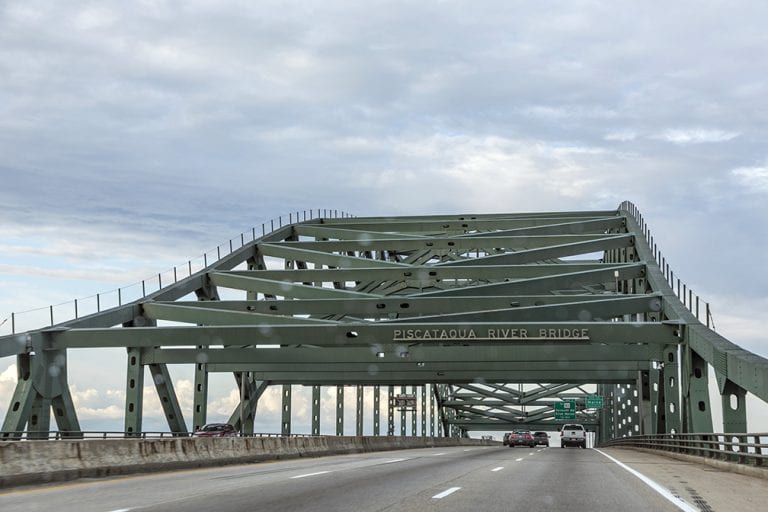KITTERY, Maine — Maine and New Hampshire transportation departments are preparing to roll out the tech to keep travel moving during peak travel periods on the Interstate 95 bridge that connects the two states.
Workers will be finishing most of an overhaul of the Piscataqua River bridge by this fall; the technology upgrades will begin after the work is completed, said Charles Blackman, intelligent transportation systems engineer for the New Hampshire Department of Transportation.
Additional cameras and sensors will be installed to detect traffic flow and slowdowns. That information will be more important because engineers plan to open the breakdown lanes for travel during congested periods, Blackman said. The move would boost the traffic volume in each direction by more than 1,000 vehicles per hour.
“The more we know about how traffic is flowing at any given moment, the faster we can react and quickly convey information to travelers to improve safety and mobility,” said Paul Merrill, spokesperson for the Maine Department of Transportation.
Opening the breakdown lanes to travel during peak travel times will be far less expensive than expanding the width of the bridge, officials said.
First, workers must complete the resurfacing and rehabilitation of the bridge that opened nearly five decades ago.
The rehab project, which will cost nearly $53 million, began in the spring of 2019, and there will be more lane closures this summer. The project is due to be nearly complete this fall, with final repaving taking place in May 2022.
The bridge can currently accommodate 4,500 vehicles per hour in each direction with three lanes for each direction, Blackman said.
When the extra lane is in use, the highway will be able to easily accommodate about 5,500 vehicles in each direction, he said.
The number of sensors that detect vehicles and speed will grow from one to somewhere between eight and 10, and the number of cameras will grow from seven that are now in use to about 20, Blackman said.
A tower is expected to be built to collect information from the sensors and relay it to transportation workers. The project is expected to cost about $8 million, and it’s expected to wrap up by May 2023, he said.
The project costs are being shared by the states of New Hampshire and Maine, and the Maine Turnpike Authority.
The Associated Press is an independent global news organization dedicated to factual reporting. Founded in 1846, AP today remains the most trusted source of fast, accurate, unbiased news in all formats and the essential provider of the technology and services vital to the news business. The Trucker Media Group is subscriber of The Associated Press has been granted the license to use this content on TheTrucker.com and The Trucker newspaper in accordance with its Content License Agreement with The Associated Press.














